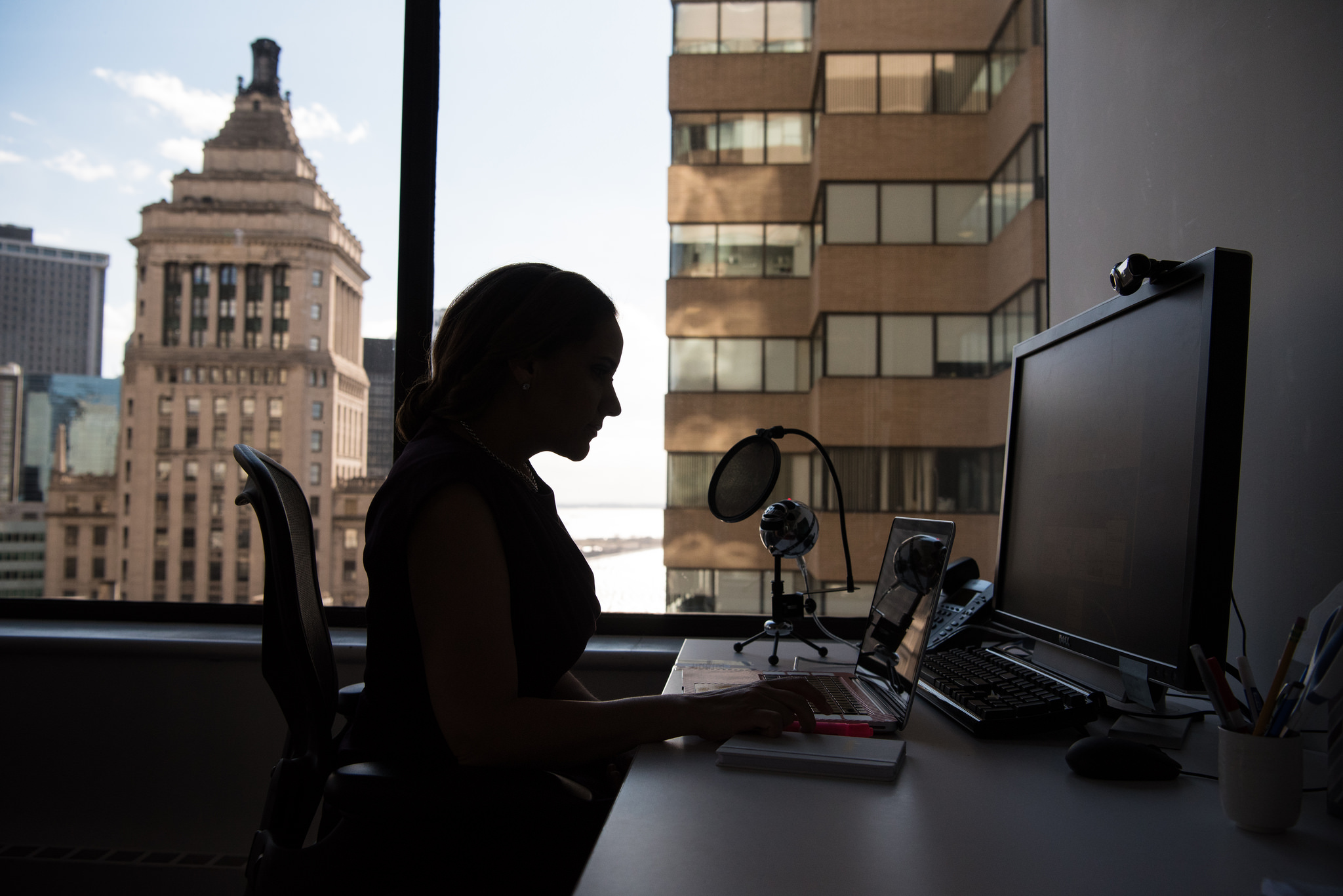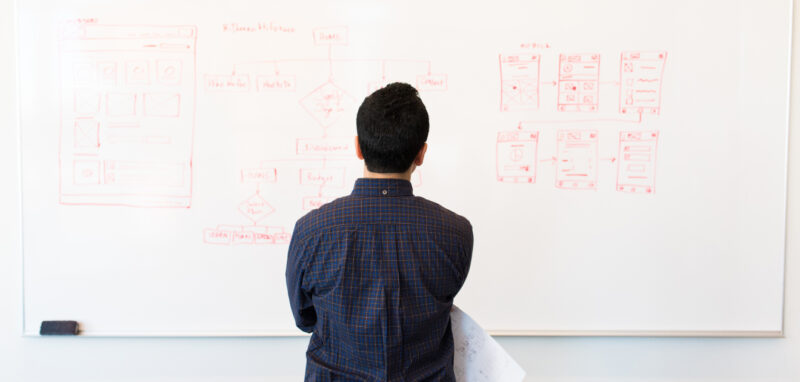
How to Recover After a Bad Interview
So you don’t feel great about an interview you just had – now what? No matter how much you prepare, some interviews simply go terribly. Like so many obstacles life throws your way, it’s up to you to choose how to react. So, what are the next steps? Use these pointers to guide you through any stumbles and recover from a bad interview.
1. Take a step back and reflectBefore rushing to any action, take some time to reflect on – but not obsess over – what actually went wrong in the interview. It’s important to cool down from any frustrations or anger you feel immediately after. Avoid over-analyzing each answer. The key here is to be as objective as possible. It’s entirely possible to recover from a bad interview. It’s an opportunity to demonstrate how you handle setbacks too.
Say you made more minor mistakes such as being too vague about your weaknesses or forgetting to mention a volunteer experience on your CV. There’s no point in stressing over it. It doesn’t make sense to bring this up to your interviewer after the fact.
Christy Rosen, Certified Career Coach and Interview Professional, tells interviewees, “Don’t beat yourself up. Reflect and figure out what happened. This is key to understanding what went wrong. If you feel like the interview didn’t go well, more than likely it didn’t. So what did you do wrong? Did you investigate the job description and know everything? Specifically for this job, did you take the time to prepare for the interview?”
Related: Want to Ace Behavioral Interviews? A Guide to Prep Jobseekers
2. Ask for feedbackChristy is a big advocate of asking for feedback. She loves it when people ask because it shows:
- They want to be better
- They are willing to take constructive criticism
“In a follow-up email, post-interview express how much you appreciate the interviewer’s time. This is also a good opportunity to address any blunders. Say, ‘I love this question you asked me. Quite honestly, there are some elements I neglected to tell you that I would like to share here.’ (Keep it concise.) This is a great way to showcase your ability to self-reflect.
In an interview, I recommend asking for feedback at the end. You can say, ‘I enjoyed our interview. Do you have two or three points of feedback for me about how the interview went for you?’ This opens up a professional conversation at the end and is another way for you to stand out.”
3. Attempt damage control, elegantlyIf you made a mistake that might seriously impact the interviewer’s decision, such as failing to mention your only relevant work experience to the role you’re interviewing for, it’s worth at least considering a shot at damage control. In short, if you think it’s a mistake that would likely turn a ‘yes’ to a ‘no,’ you’ve got nothing to lose by trying to patch things up.
The easiest way to bring up additional information is generally in your thank you note after the interview. Interviewers will already expect it so adding in a few additional sentences wouldn’t be odd.
First, figure out exactly what you want the interviewer to take away from your note. Then, find a concise way to write it. Try to avoid making it sound like an apology. You’re simply adding new information to what was discussed during the interview, not admitting to a mistake.
If, in the worst-case scenario, you had an incredibly off day (perhaps you were ill), it might be worth asking for a second chance entirely. The worst that can happen is they deny it. But if you already think you bombed the interview, there’s no harm in asking. This is particularly true if you really want the job. Don’t make a habit of this though and make sure your second interview is miles better.
4. Learn from your mistakesPerhaps most importantly, a bad interview is a good learning experience. Each mistake helps to better prepare you for future interviews. Use your mistakes as learning material to prevent them from happening again.
Analyze your mistakes
Start by identifying all of the mistakes you made, then determine what the main cause was. Perhaps your missteps were a result of nerves. This is common and results in fumbling over answers or rambling.
Or, if you were underprepared for the interview, you didn’t anticipate the interviewer’s questions. If so, you may have not prepared solid answers or forgotten to mention relevant experiences.
Taking the reflection piece a step further, Christy says, “Think about what to hone in on for the next time. Focus on the learning piece. What will you do differently? How will you better prepare? How will you boost your confidence?”
5. Practice for the next timeIf nerves are your issue, practice is your friend. Ask a friend or family member to mock interview you with their own questions. This helps you be more comfortable thinking on your feet and answering questions on the fly.
In addition, practice your answers to the most standard interview questions. This may include why you want the job, why you’re passionate about the company, and your strengths and weaknesses.
Christy emphasizes practicing a lot for the “tell me about yourself” question in particular. “If you nail that, you’re going in the right direction for the rest of the interview. It’s one most people mess up. Confidence in knowing what you’re doing in the interview is crucial to setting the stage.”
It would also help to write down the questions you had in the interview (reflecting on what you said) and preparing for future interviews based on these learnings. What would you ideally have said?
Related: 30 Behavioral Interview Questions You Should Be Ready to Answer
Another helpful tip as you practice is to remember to breathe. Reflecting on her coaching experience, Christy explains, “Breathing helps your brain work. It’s also important to pause. You can ask: ‘Do you mind if I think about that for a second?’ Most people don’t do that. They just start talking and figure out the answer as they go. The interviewer sees and hears this. It’s a bit of a ding against you.”
Related: Who (And How) to Ask for a Job Reference
Give yourself a fair shotIf you were under-prepared for the interview, ask yourself whether it was because you didn’t spend enough time beforehand or you prepared for the wrong questions.
It can be frustrating to feel you spent a lot of time getting ready for an interview that went in a totally different direction. But you can use this experience to better gauge the types of questions to expect in the future.
If you simply didn’t spend enough time preparing, ask yourself why that is. Perhaps you weren’t motivated by the job in the first place and you shouldn’t have pushed it to the in-person interview stage. Maybe you couldn’t find time in your schedule to prepare or it took longer than you expected. If so, budget extra time for future interviews.
Regardless of how bad you feel after a poor interview, remember that it will never be your last chance. That is, whether you ask the same employer for another shot or use your blunders to fine-tune your skills for the future. Someday you’ll (hopefully) be laughing about terrible interview stories. Maybe you’ll use your experience to coach someone else on how to recover from a bad interview.
About Hired
Hired is the most efficient way to find a tech or a sales role you love today. With unbiased insights, DEI tools, skill assessments, and dedicated Candidate Experience Managers, Hired works with over 10,000 companies around the world to connect thousands of active and qualified candidates to employ their full potential. After registering, platform jobseekers match with top employers thanks to better data, preference curation, and compensation transparency. Backed by The Adecco Group, Hired is rated by G2 as a leader in Recruiting Automation, Job Search Sites, and Diversity Recruiting.
Complete a free profile and let companies come to you.Originally written in April 2019 by Napala Pratini. Updated by the Hired Content Team in January 2022 and December 2023.
Related blog posts

Is My Job Too Much Work for One Person?
4 Strategies to Address Feeling Overwhelmed at Work Whether you work for a startup or...

Are You Burnt Out (Or Do You Really Just Hate Your Job)?
The difference between the two and what to do about it Your career may be a large part of your...

4 Things Every Engineer Must Do Before A Technical Interview
In order to become an expert on something, mere talent or aptitude is not enough. According to...

Where Do Engineer Salaries Pay the Best (Highest) Standard of Living?
Opportunity shifts from higher cost-of-living markets The rise in remote work prompted...

What Makes You Love Your Job? 6 Crucial Job Happiness Indicators
In a world with increasingly long workweeks and demanding workplace expectations, there’s a...

Salary Negotiation 101: How to Know and Ask For Your Salary Worth
Salary negotiation is a difficult task for everyone. That goes for whether you’re just...
